Phonics practice Normal Worksheets for Ages 6-9
20 filtered results
-
From - To
Enhance your child's reading skills with our Phonics Practice Normal Worksheets, specifically designed for ages 6-9. These engaging activities help young learners grasp essential phonics concepts, improve their decoding, and develop a strong foundation in literacy. Each worksheet is crafted to reinforce sound-letter relationships, blending, and reading comprehension in a fun and educational way. With a variety of exercises tailored to different learning styles, your child will enjoy practicing phonics while building confidence in reading. Download these worksheets today and watch your child thrive as they embark on a journey to becoming proficient readers!
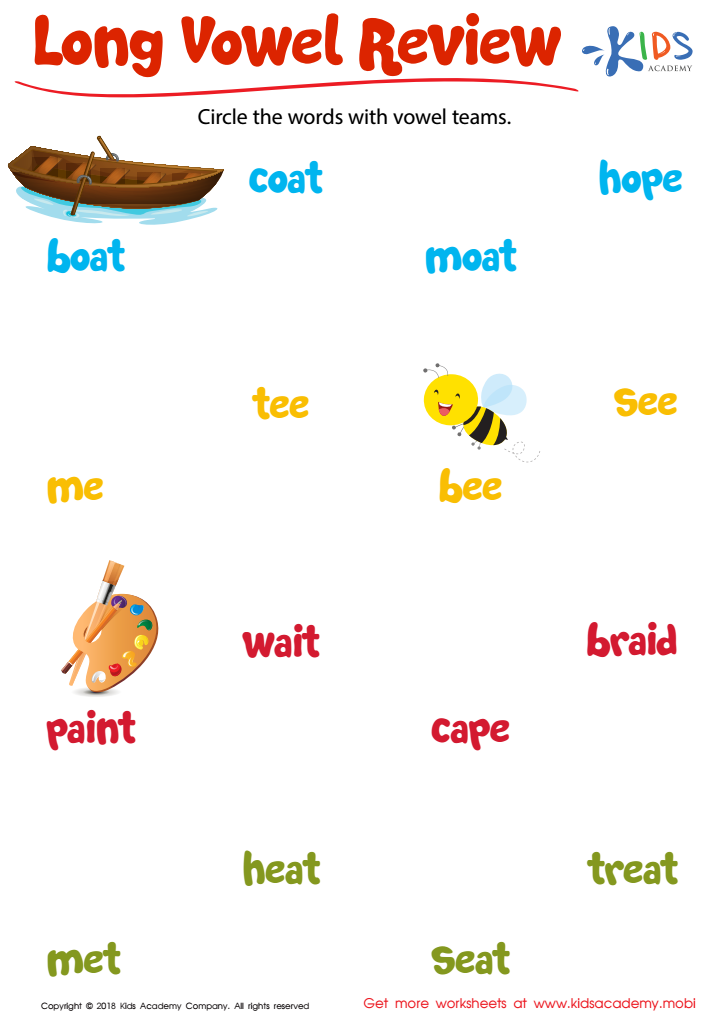

Long Vowel Review Worksheet
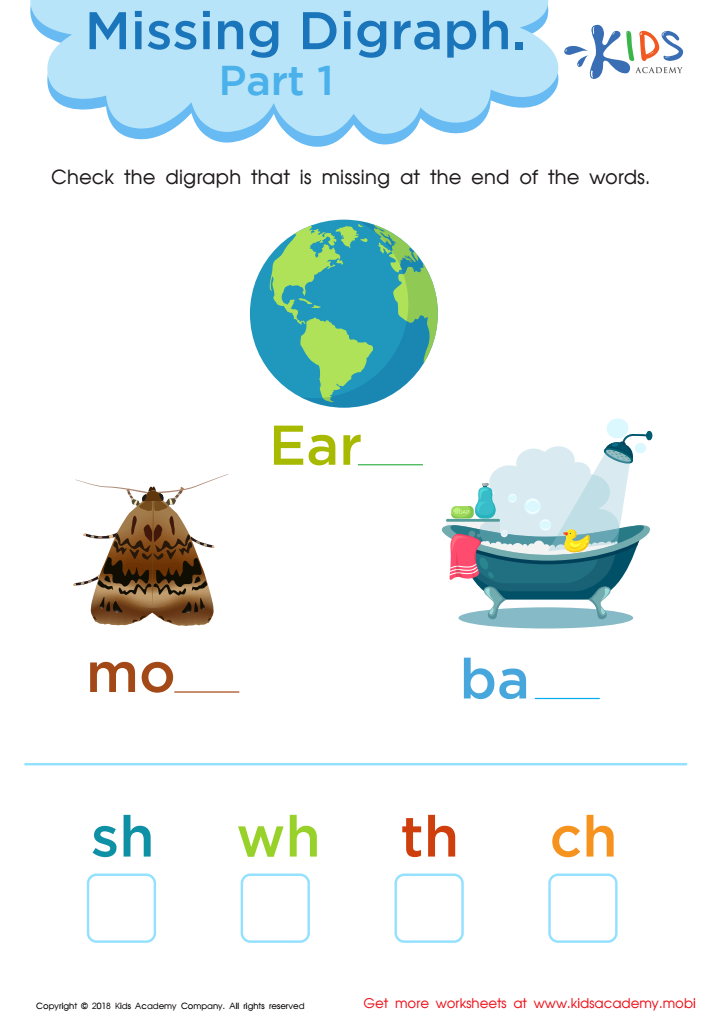

Missing Digraph: Part 1 Worksheet
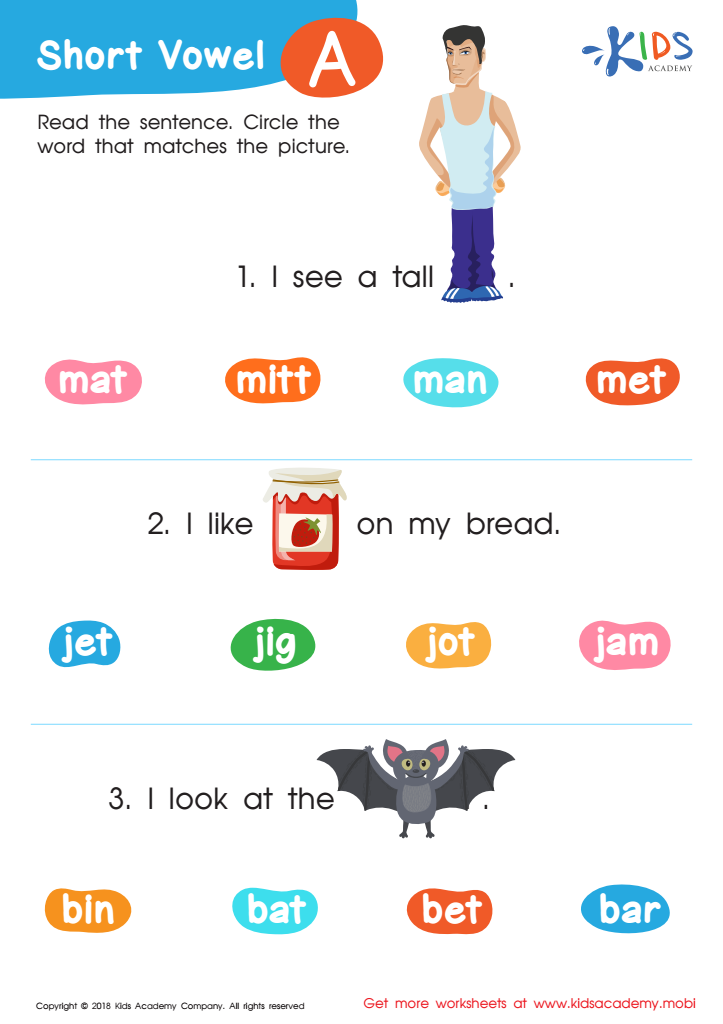

Short Vowel /a/ Worksheet
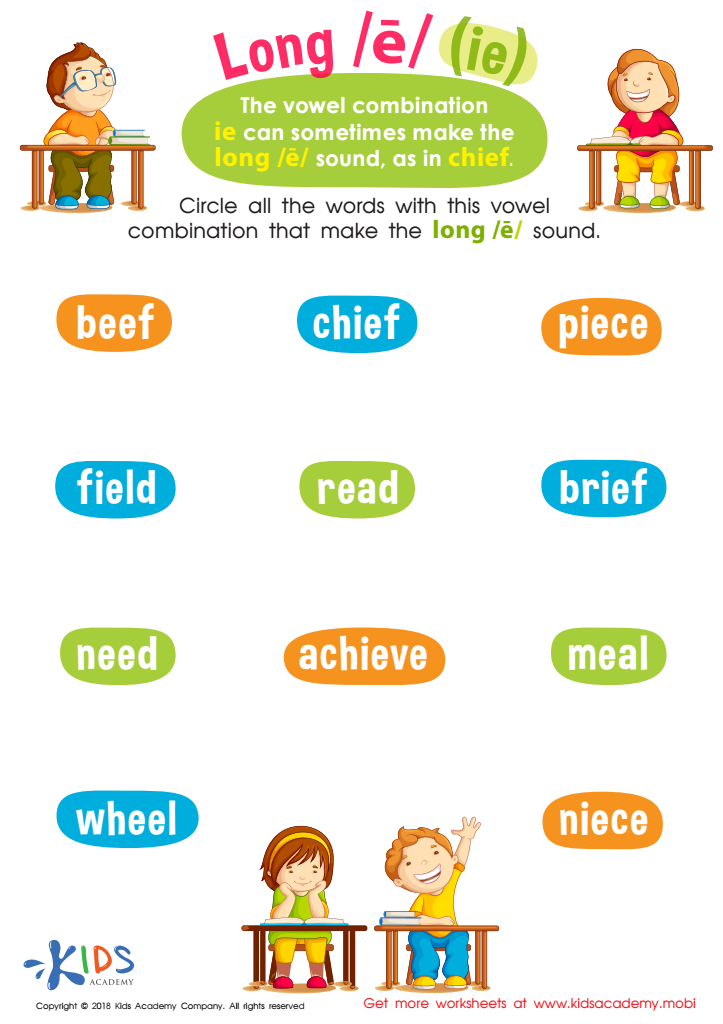

Reading: Long E and IE Worksheet


Letter A Coloring Sheet
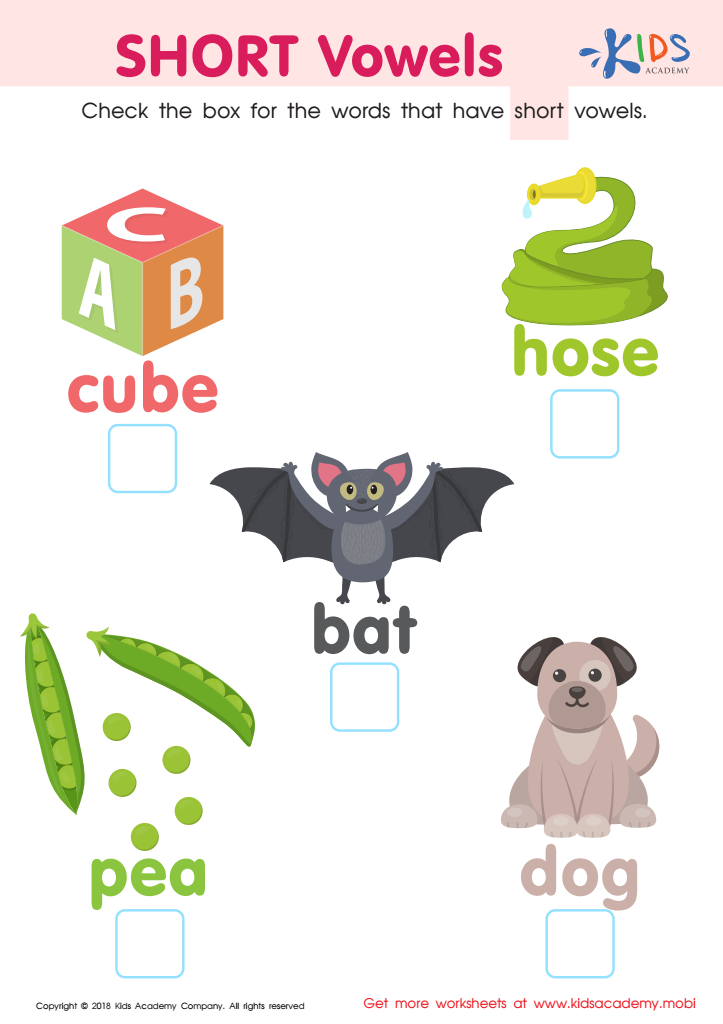

short vowels Worksheet
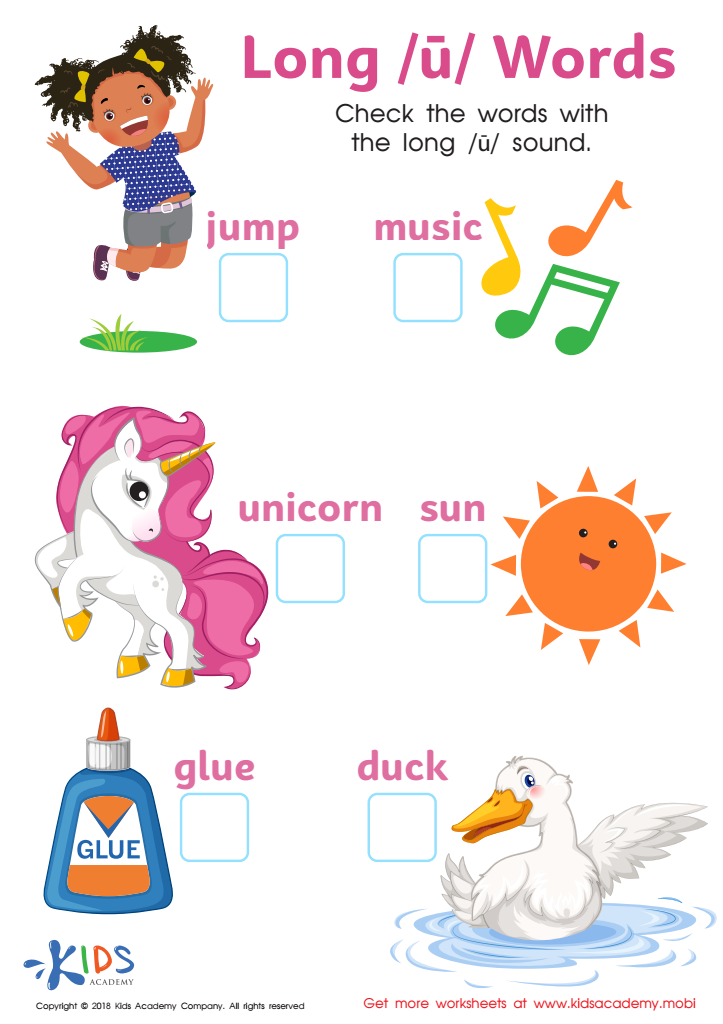

Long U Words Reading Worksheet
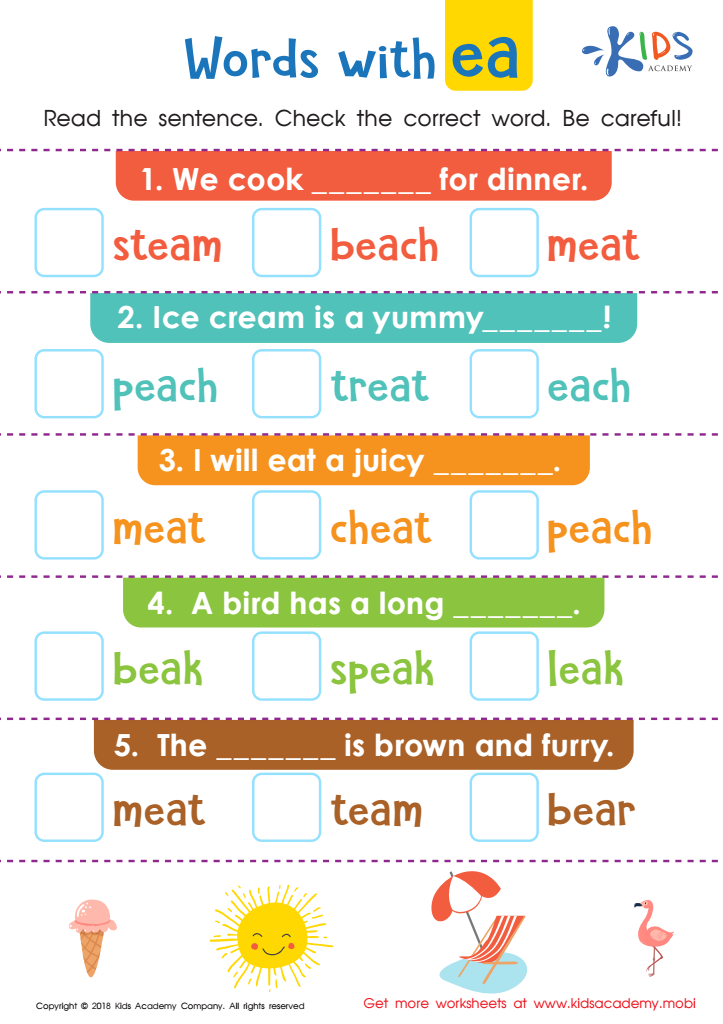

Words with ea Worksheet


Twin Onset Worksheet
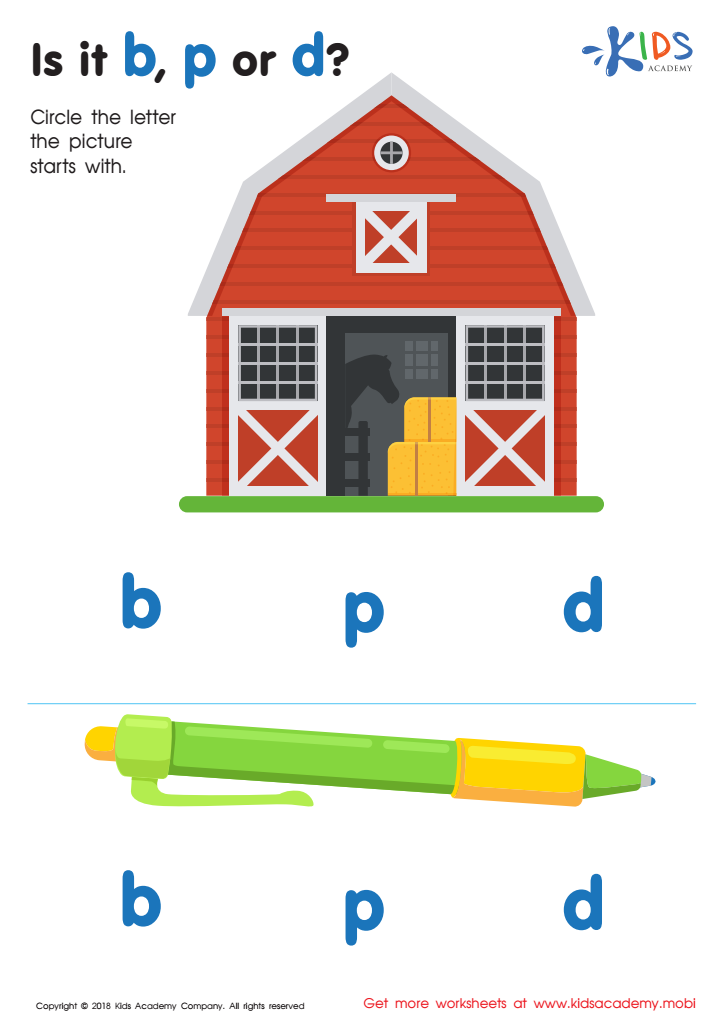

Is it b, p or d? Worksheet


Short Vowel Eggs Worksheet
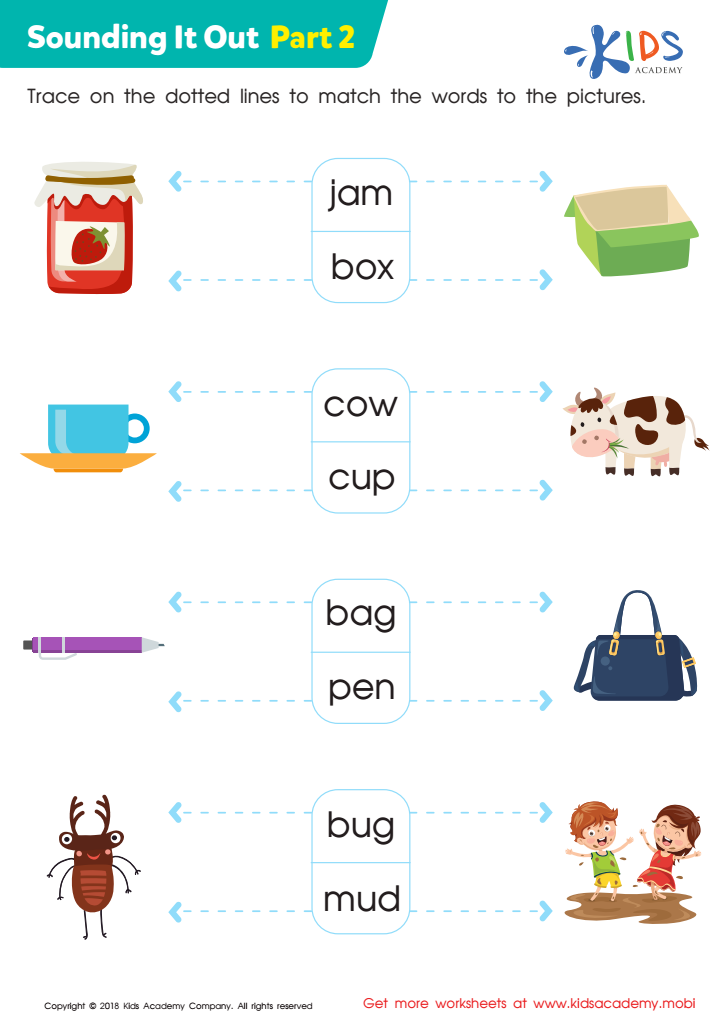

Sounding it Out: Part 2 Worksheet
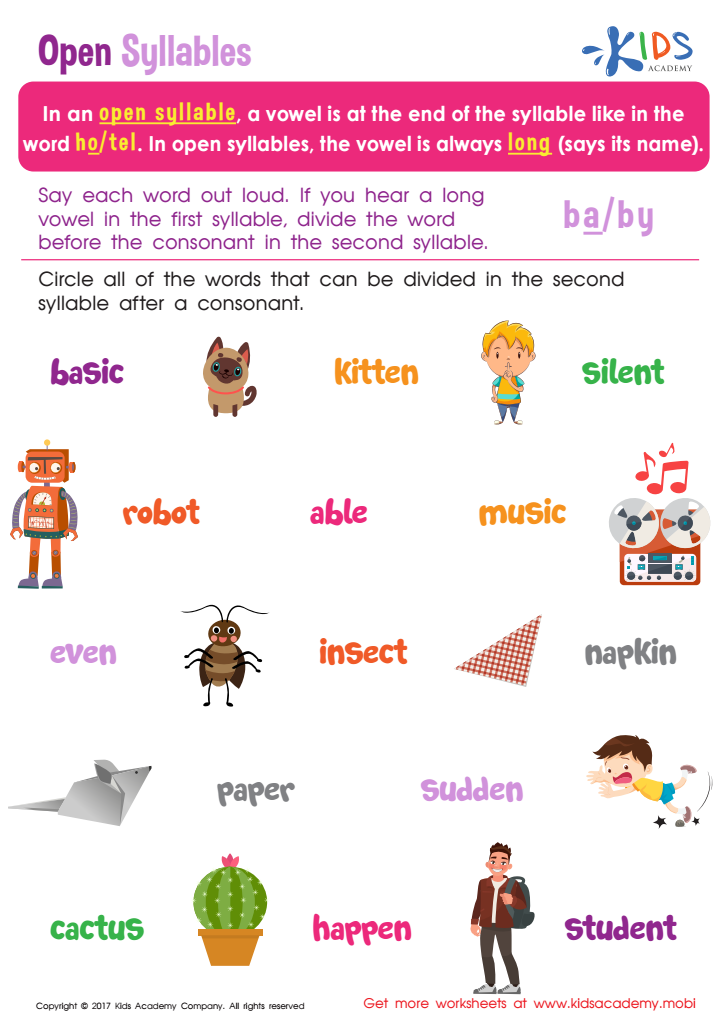

Open Syllable Printable Worksheet
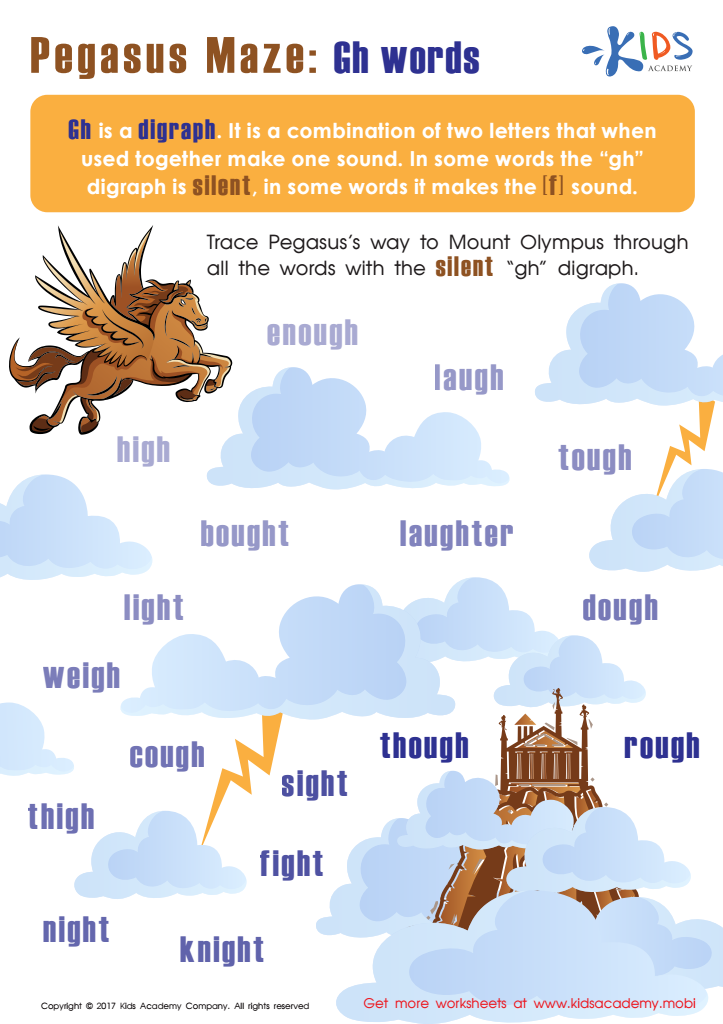

Pegasus Maze: GH Words Worksheet


Words with sound p Reading Worksheet


Words with sound f Reading Worksheet
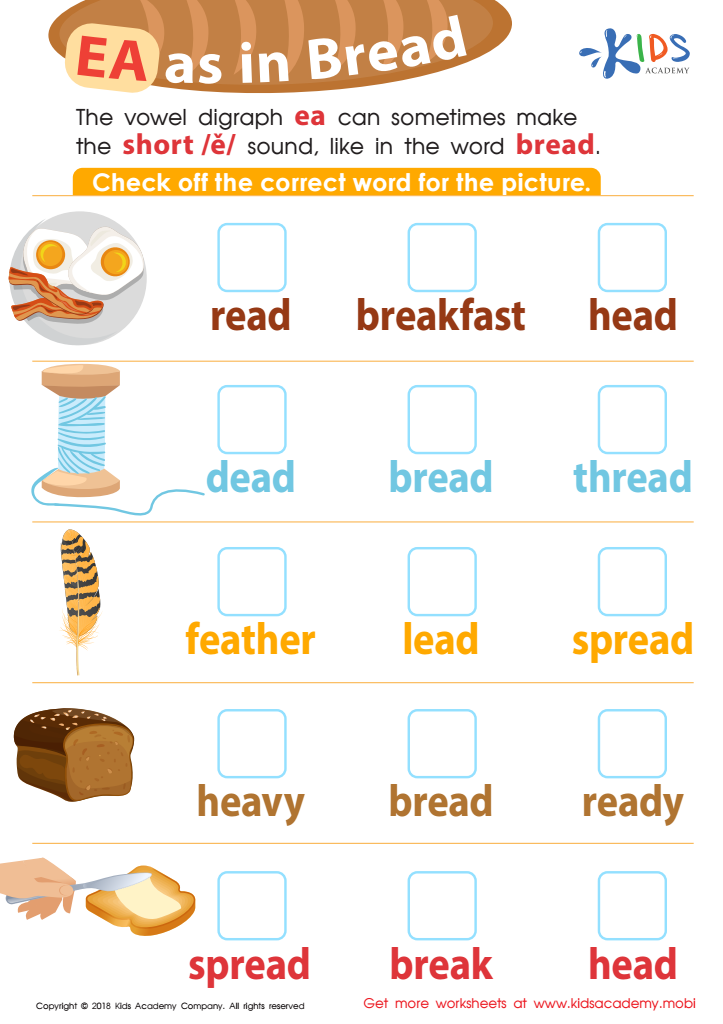

Reading: EA as in Bread Worksheet
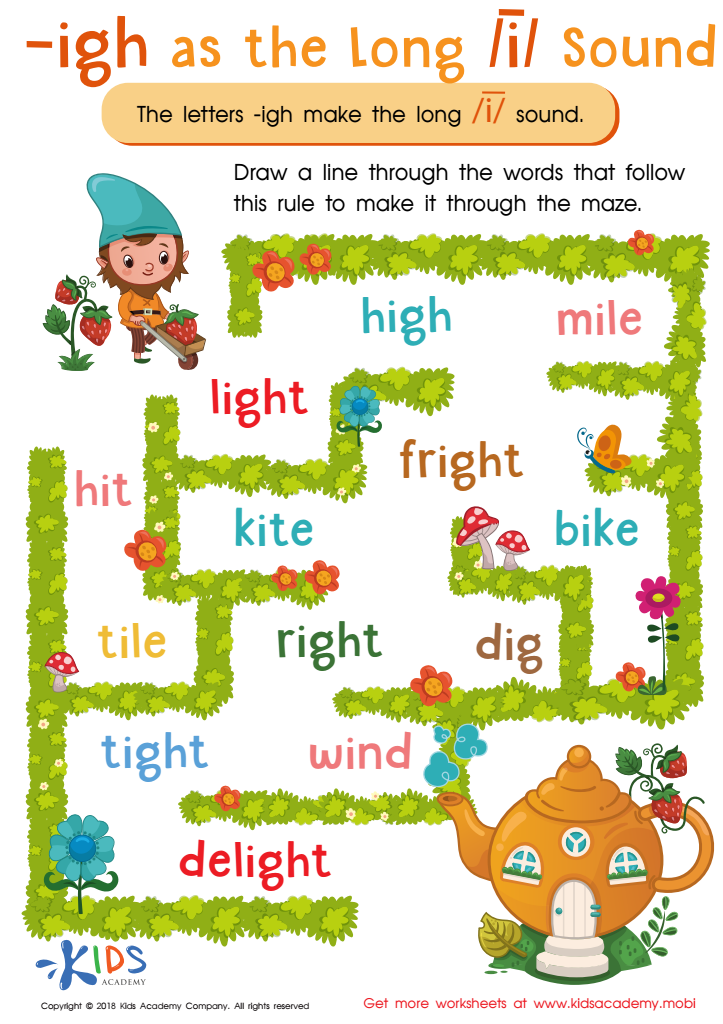

Reading: IGH as Long I Worksheet
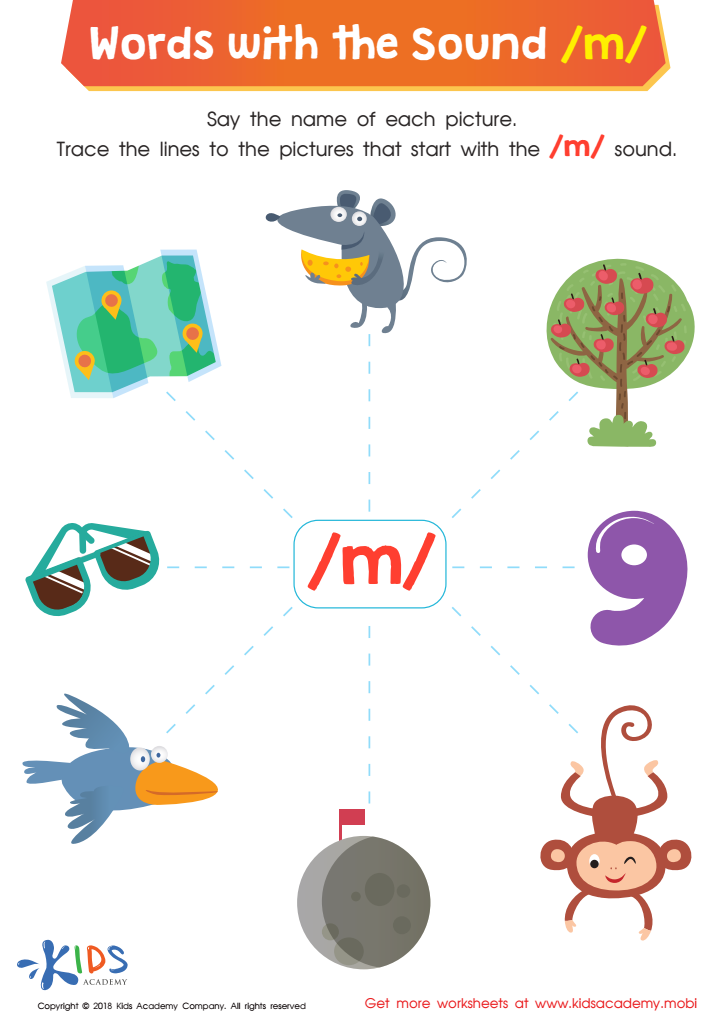

Words with Sound M Reading Worksheet
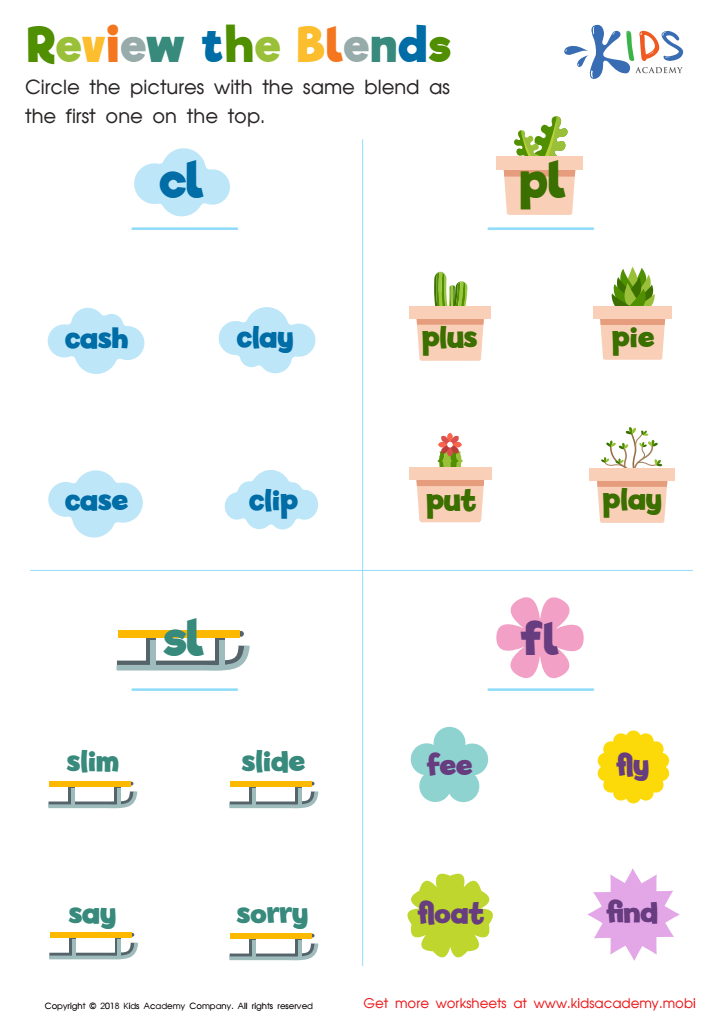

Review the Blends Worksheet
Phonics practice is essential for children aged 6-9 as it lays the groundwork for reading and writing skills. During these formative years, children are transitioning from learning to read to reading to learn. Mastering phonics helps them decode words, improving their ability to recognize and understand text more confidently and independently.
When parents and teachers support phonics practice, they cultivate essential literacy skills that contribute to overall academic success. Phonics instruction specifically helps children understand the relationship between sounds (phonemes) and letters (graphemes), enabling them to easily sound out unfamiliar words and read aloud with greater fluency.
Additionally, strong phonics skills bolster vocabulary development, comprehension, and spelling abilities. This foundation assists not only in literacy but also in developing critical thinking and communication skills. As children become more proficient readers, their enjoyment of literature increases, fostering a lifelong love of reading.
Moreover, phonics practice caters to diverse learning styles, offering visual, auditory, and kinesthetic strategies. By engaging in phonics activities at school and home, parents and teachers can create a supportive environment that encourages risk-taking in reading and promotes confidence in children's abilities, setting them up for future academic achievements.

 Assign to My Students
Assign to My Students





















